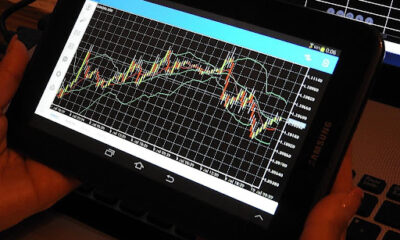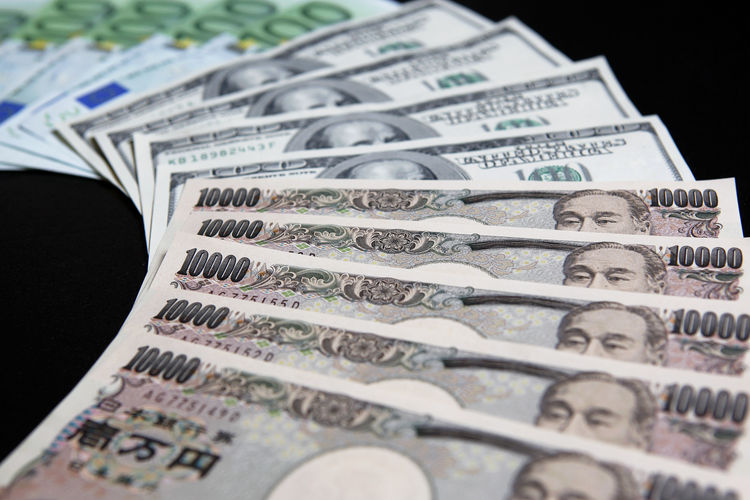The Naira continued its bullish trend against the US Dollar on Thursday on the parallel segment of the foreign exchange (FX) market following the reverberations of a significant development – the securing of a $3 billion crude oil repayment loan by the Nigerian National Petroleum Company Limited (NNPCL) from the Africa Import and Export Bank (AFREXIM).
This strategic move was aimed at bolstering the stability of the local currency.
According to data from AbokiFX, a reputable online platform tracking parallel market exchange rates, as of 9:52 AM on Thursday, August 17, parallel market FX dealers were purchasing the Dollar at N835 and selling at N860.
These figures stand in stark contrast to the rates observed before news of the AFREXIM loan emerged on Wednesday. Back then, the greenback was being bought at N880 and sold at N910 by parallel market FX dealers.
Otega Ogra, Senior Special Assistant to President Bola Tinubu on Digital/New Media, elucidated the purpose of the $3 billion Emergency Crude Repayment Loan from AFREXIM via a tweet.
He stated, “What’s the benefit of this loan to Nigeria? The loan will assist NNPC Limited in settling taxes and royalties in advance. It will also equip the Federal Government with the necessary dollar liquidity to stabilize the Naira, with limited risk.”
Addressing concerns about fuel prices, Ogra added, “Will this affect fuel prices? A strengthened Naira as a result of this initiative will lead to a reduction in fuel costs. This means that if the Naira appreciates in value, the cost of fuel will drop and further increases will be halted.”
The impact on subsidies was also discussed by the President’s aide: “What about subsidies? Are they coming back? No. A stronger Naira will result in lower prices from the current level, making subsidies unnecessary. The deregulation policy remains unchanged.”
Commenting on the economic outlook, a team of research analysts led by Damilare Ojo at Lagos-based Meristem expressed their perspective, “In our view, core inflation will remain elevated in the near term in light of the continued free-fall of the Naira. The outlook of the FX market is largely marked by uncertainty and volatility; as such, there is an urgent need for a unified strategy to address these challenges, involving enhancing FX liquidity, promoting export diversity, and fostering investors’ confidence through transparent policies.”
The National Bureau of Statistics (NBS) reported that the headline inflation rate for July 2023 had risen by 129 basis points (bps) to 24.08 percent year-on-year (YoY), compared to 22.79 percent YoY in June 2023.
Before the recent developments, the gap between the official exchange rate and the parallel market rate had widened by about N200 in the past week, reaching N950/$ on the parallel market. However, the infusion of resources from Afrexim Bank in Cairo aimed to counter speculators and stabilize the FX market, leading to a notable reduction in this gap.
Economist Tunde Delu explained that the loan aims to bridge the FX supply gap, stating, “It is apparent that the short-term solution to the rising foreign exchange prices is to seek alternative supply avenues. One of the options open to the federal government is to seek foreign loans directly or through its appointed agencies. The implication would be a positive effect on the supply of FX, thereby pushing the price of FX down as the demand-supply gap shrinks.”
Omotayo Akorede Samuel, a corporate finance lawyer, underlined the commonality of the $3 billion Emergency Crude Repayment Loan from Afrexim, stating, “This is standard practice in the Oil and Gas industry. Crude oil repayment financing has several benefits for oil companies.” Samuel highlighted the advantage of utilizing such financing to repay debts without tapping into cash reserves. Furthermore, this approach enables companies to allocate cash reserves to other ventures, emphasizing the link between repayment and crude oil, and the flexibility it affords in loan settlement.




 Forex4 weeks ago
Forex4 weeks ago




 Naira3 weeks ago
Naira3 weeks ago
 Billionaire Watch3 weeks ago
Billionaire Watch3 weeks ago








 Naira4 weeks ago
Naira4 weeks ago








 Naira3 weeks ago
Naira3 weeks ago


 Naira2 weeks ago
Naira2 weeks ago








 Naira2 weeks ago
Naira2 weeks ago
 Commodities4 weeks ago
Commodities4 weeks ago












